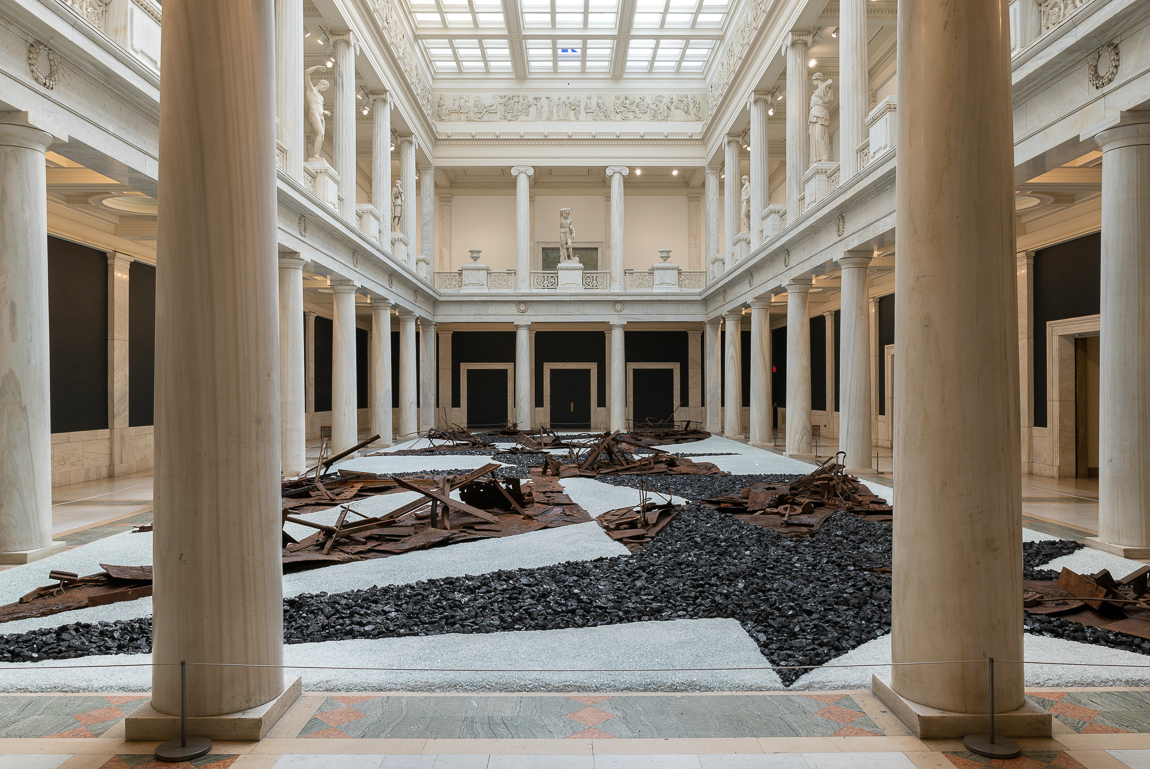
By Ahmed V. Ortiz
A new collaboration among 18 CSU campuses is helping university galleries stay connected to students and each other during the COVID-19 pandemic.
ConSortiUm is a first-of-its-kind collaboration among students, faculty, staff, and other allies from across the CSU, conceived by Kelly Lindner, Sacramento State’s University Galleries curator, with her CSU Fullerton counterpart John Spiak.
The two reached out to colleagues in April, initially to discuss how campus closures would affect exhibitions and programming for the rest of the Spring semester. Their conversations quickly evolved into thinking about ideas for collaborative virtual programming.
The result is Platform, an online event series featuring socially engaged artists, collectives, and curators in conversation.
The second of three events scheduled for the Fall semester is at 5:30 p.m. today, Oct. 22, with Cristóbal Martínez and Kade L. Twist of the arts collective Postcommodity. Three more events are planned for spring.
All events are live on Zoom and free and open to the public. Recordings will be available for later viewing and archived by the sponsoring institutions.
The first event was Sept. 24 and featured CSU Northridge Professor Beatriz Cortez, an artist and cultural critic, in conversation with Erin Christovale, associate curator at the Hammer Museum in Los Angeles and co-founder of the experimental film and video program Black Radical Imagination.
Lindner said the series intentionally focuses on incisive artists whose work centers on social justice, which she and her colleagues saw as essential as the Black Lives Matter protests unfolded.
After at first brainstorming potential artists they’d like to host, they honed in on those whose work confronts “issues of racism or post-colonialism, or identity in ways that were really tied to what’s happening in our society right now,” she said. That meant welcoming artists whose work is central to current reimaginings of not just the art world, but all the world.
They include art collectives such as Postcommodity, which challenges social, economic and political norms and connects “Indigenous narratives of cultural self-determination with the broader public sphere,” according to its website; and Forensic Architecture, featured artist in the Fall semester’s final Platform event, which Sac State co-hosts Thursday, Nov. 12.
Forensic Architecture went so far as to call out, in a short film commissioned for the Whitney Museum of American Art’s 2019 biennial, the museum board vice chairman’s ownership of a defense-contracting company that produces tear gas canisters used around the world, including against asylum seekers at the U.S.-Mexico border.
“I don’t think that they were quite prepared for the amount of controversy that would come out of that project,” Lindner said. “Especially because that board member ended up resigning.”
Lindner said that without a collective effort, each university might not independently have been able to entice some of the artists featured in Platform – or create such an opportunity for students, whom ConSortiUm recognizes as integral to creating a new future, to access a multiplicity of voices and inspiration as they discover and nurture their own agency.
She hopes the program sets a course for long-term collaboration, especially given anticipated budget challenges. She also talks of a “paradigm shift” in education, particularly in higher education, and a need to be more resourceful in forging partnerships that benefit students.
“We don’t want to diminish the quality of what we can offer students,” she said.